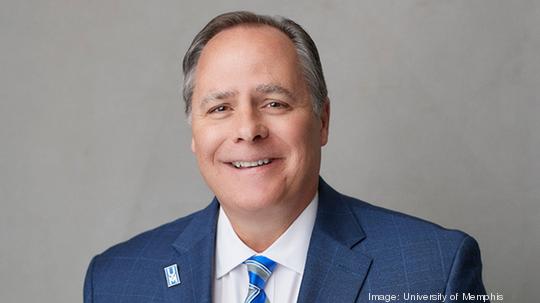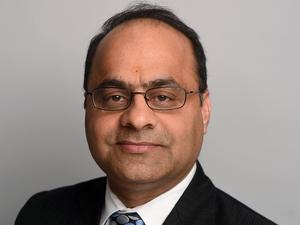
Long before M. David Rudd was president of the University of Memphis, he was a young psychologist serving in the Army during the Gulf War — and he could see, clearly, the need for an alternate form of treatment for military personnel.
Prior to the Gulf War, the U.S. hadn’t been involved in a full-scale conflict since the Vietnam War, and in the interim period between the two, many people had enrolled in the military for the educational benefits that came with it. The new armed campaign hadn’t been anticipated.
“They really weren't well prepared for the idea that they were going to be in combat,” Rudd remembered. “And it created significant challenges.”
The military suicide rate was rising, but Rudd and other psychologists were limited in how they could treat patients in a military environment, as they didn’t have the freedom and flexibility to work with them for extended periods of time. There were only brief windows of opportunity to provide treatment; and for Rudd, the problem hit home when one of his patients took their own life.
“That had a very significant impact, not just on me personally, but professionally, and how I thought about and understood the problem,” he said. “We needed something that was targeted, focused, and really specific to the problem because of the unique environment that you find in the military context.”
So, Rudd developed Brief Cognitive Behavioral Therapy (BCBT): a treatment for patients that primarily focuses on providing them with basic emotional self-management skills, to reduce the individual emotional pain and suffering tied to suicide risk.
In the three decades since then, Rudd has gone on to become a celebrated faculty member and university president, serving as U of M’s leader from 2014 to 2022. But he never abandoned BCBT, or ceased to combat military suicide. And now, with his presidency behind him, he’s pouring all his energy into this effort.
The true identity of M. David Rudd
Under Rudd’s leadership, U of M gained a new level of prominence, and he enjoyed his time as its president. But the array of responsibilities gave him less time to focus on research and psychology, which he missed. Between his time at the University of Utah and U of M, he had been in senior-level administrative roles for 15 years — and he wanted to get back to his previous work.
“If you ask me really what my professional identity is,” he said, “I would tell you it's being a psychologist."
Now, Rudd has fully returned to that identity, and the career he had for years before he took on administrative positions. Post-presidency, he’s a distinguished professor of psychology at U of M, and the director of its Rudd Institute for Veteran and Military Suicide Prevention.
But what exactly does the Institute do?
It’s focused on effective treatments for veterans and active-duty members of the military, and it’s starting with one that goes back to Rudd’s early days as a psychologist: BCBT.
A digital app, and phases of life
Since its inception, BCBT has gone through multiple iterations. The latest is a digital version of the therapy, which is in an app that can be accessed on a phone.
“We did that for ease of access for people who are in areas with limited access to care and limited access to a VA facility or another facility clinician around them,” Rudd said. “It really was about improving access, affordability, and fidelity of the intervention.”
The app, called Aviva, was created by New Haven-based Oui Therapeutics — a company Rudd co-founded — and it has integrated video, as well as integrated clinician capacity. A user can pull up the treatment and do it with a clinician over video, or they can do it independently, as the app has an AI bot that can guide them through the process.
A study in Fort Carson, Colorado, is now set to test Aviva, and Rudd and his institute are playing a significant role in it. Part of a coordinated effort led by Ohio State University, the project has received $8.5 million in funding and a $2.2 million chunk of this has been designated to U of M for its part of the project. With the goal to enroll more than 300 patients over two years, the study will be conducted at primary care clinics in Fort Carson.
Rudd is set to go back and forth between Memphis and Fort Carson during the study, and this isn’t the only project he’s working on. He’s also collaborating with Ohio State University on a project that’s just received funding, which will create a digital platform that teaches clinicians how to provide BCBT.
And he’s writing a few books — one is set to be finished in the coming month — while gearing up to hire people for the Institute. The hope is that he can help establish it as a place nationally known for the development and implementation of treatment options for veterans and for active military members, and he plans to do this as he teaches students as a faculty member at U of M.
The goals are lofty, and Rudd’s schedule remains busy. But he’s excited for the future — and he’s at peace with his decision to step away from the presidency.
“It’s not a difficult transition,” he said. “There are phases in everything that we do. And this was an important phase, a critical one, but I’m absolutely looking forward to the next one. … I'm getting back to things I've really missed doing."









